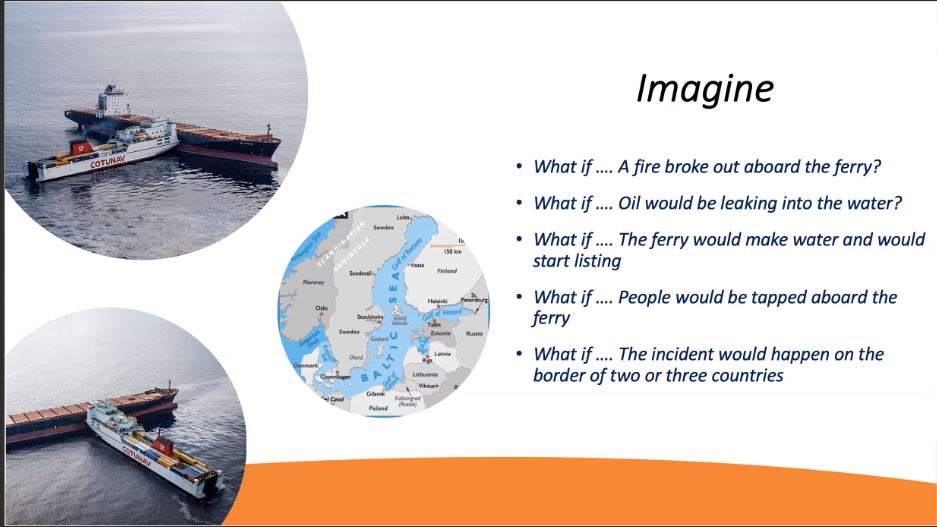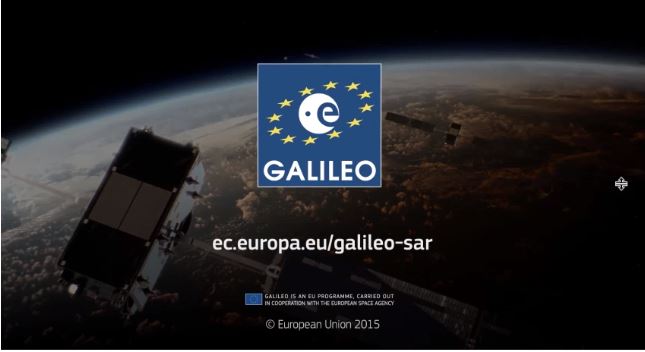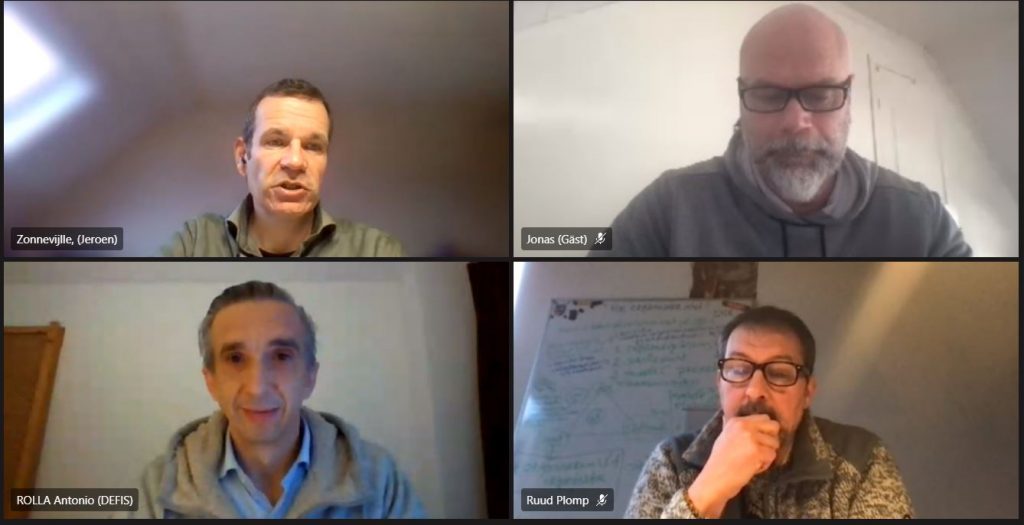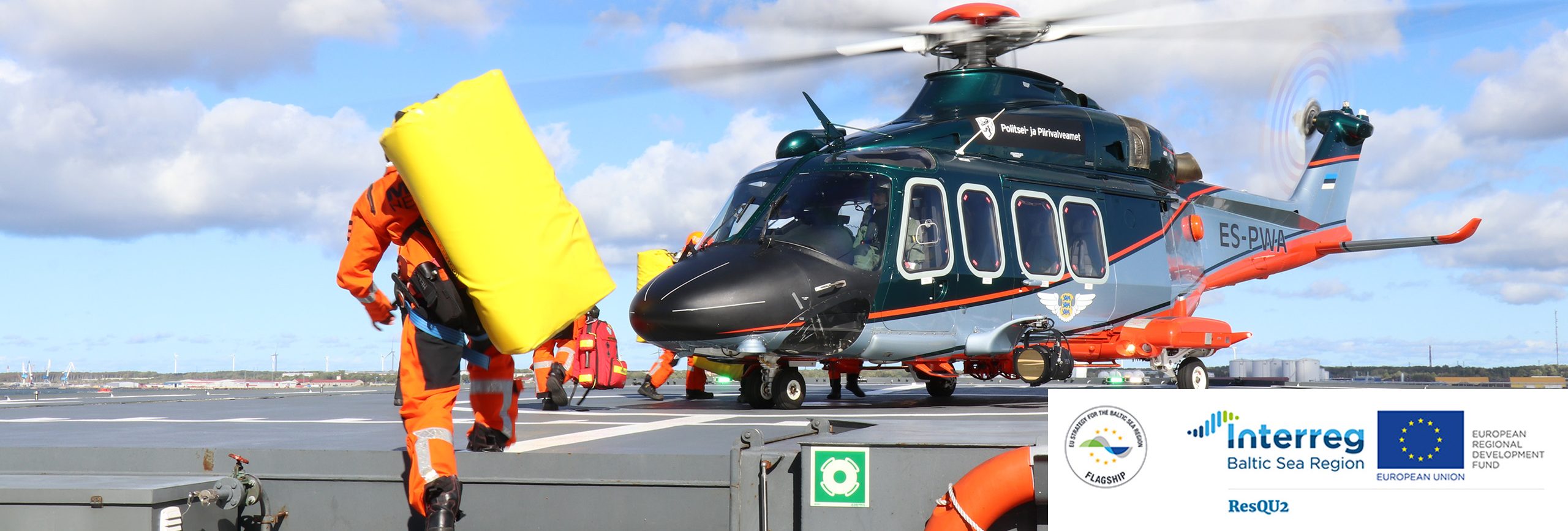Rescue professionals gathered in an online workshop on Wednesday last week to discuss how maritime incident control and international rescue operations could be enhanced. A lot has already been done, but there is still room for improvement and new solutions.
What Ifs

Jeroen Zonnevijlle, Safety Region Zeeland, led participants into the day’s topic by imagining What Ifs – fire breaking on board a ferry, people trapped on board a passenger ship, or colliding tankers filled with toxic chemicals. What Then?
This is what the ResQU2 Platform and its projects – ChemSAR, DiveSMART Baltic, HAZARD & MIRG-EX – do; they are cooperating, sharing experiences and best practices to be able to act if any of these What Ifs come true.
Before the workshop, a questionnaire was made to collect current information from rescue authorities and services. We wanted to know, for example, what are the operational gaps, and what kind of development has taken place and what is foreseen. The topics were, among others, incidents involving hazardous materials, SAR operations involving diving teams, firefightning aboard ships, and legislation. This collected information and additional interviews gave a starting point to the workshop. Ruud Plomp, Artemas, presented the questionnaire and its outcome. An increased need for fast response and cooperation between fire, chemical & diving SAR organisations, he summarised the results.
SAR Galileo – satellite aided search and rescue

Dr Antonio Rolla, European Commission, presented the SAR Galileo service and its benefits on SAR operations. He told how SAR Galileo has helped to shorten the time required for rescue operations.
In the future, in few years’ time, SAR Galileo will also have Remote Beacon Activation, Two Way Communication, and Distress Position Sharing.
What makes you proud of?

The workshop had breakout room sessions where the task was to think how maritime incident response could be improved and what is it that makes one proud of within the ResQU2 project platform.
The reports from the six breakout rooms emphasized the importance of such things as exchange of real time data, shared procedures, and trust. Trust is a very big part of cooperation-building: building trust takes time, and it requires long cooperation. Also, the created networks should be kept alive as should joint exercising to enable speaking the “same” language, i.e., to know each other’s ways of working. Additionally, standardised procedures were found worth developing. In real action, these bring effectiveness and maximise the number of lives saved. In addition, one should acknowledge one’s weaknesses as then one could learn from colleagues in peer organisations.
All these things have been handled in the ResQU2 projects. Currently ResQU2 partners are working on getting a policy paper to enhance cooperation in the field in the form of a “Baltic Diving Council”. Else Timms, Swedish Coast Guard, highlighted that this type of joint work would not even cost much: some meetings and exchange of information, and/or jointly coordinating exercises. First this is piloted in the diving community but why would it not work in other communities as well and in cooperation.
The workshop on Future development and the relation in maritime incident control took place on 27 January 2021 as an online event. Over 40 professionals from 12 different countries participated and shared their views. ResQU2 thanks all of them!
Workshop presentations:
Jeroen Zonnevijlle & Ruud Plomp: Current status and future developments in maritime incident control
Antonio Rolla: Galileo SAR. EU contribution to Search and Rescue

